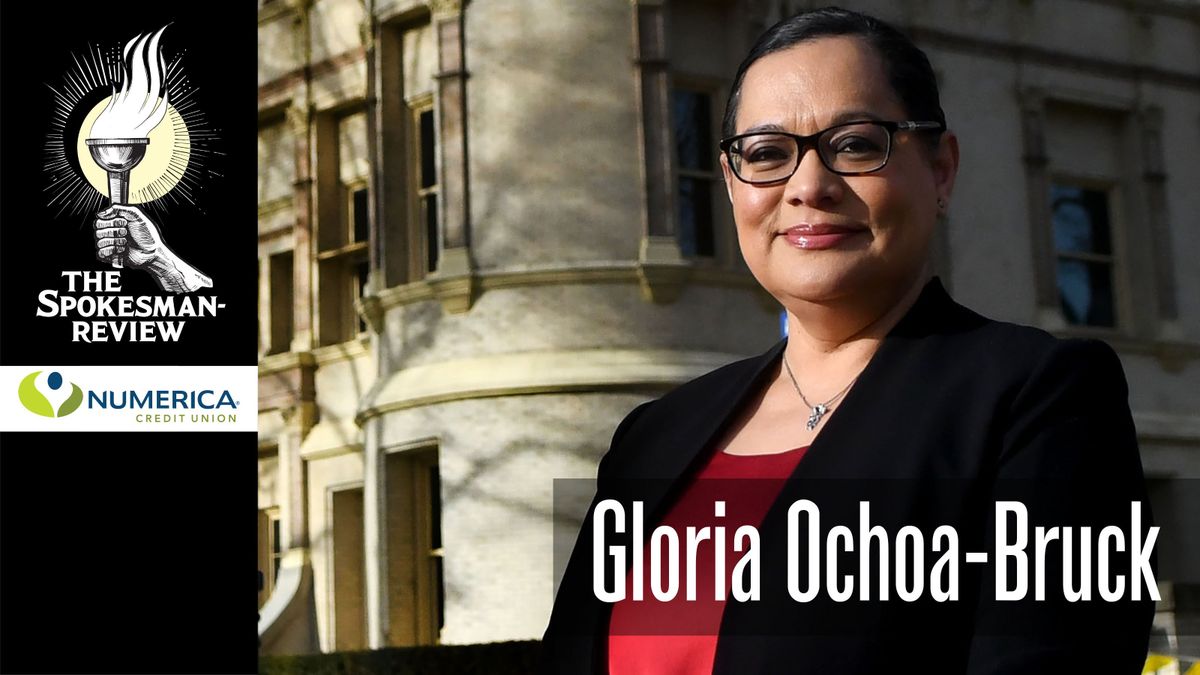Difference Makers: Gloria Ochoa-Bruck never passes up mentorship opportunity

Gloria Ochoa-Bruck credits a stand-in for her college counselor for keeping her on the path to becoming a municipal judge.
Discouraged by the length of time it would take her to earn a legal degree while working full time, Ochoa-Bruck had agreed with her regular counselor at Columbia Basin College to switch to the paralegal track. By chance, a different counselor met with her when she came in to complete the paperwork for the change.
“Her name was Wendy, and she asked me why, because I wanted to go to law school,” Ochoa-Bruck said. “And I said, at the rate I’m going, I’m going to be 27 (when I’m finished).”
“She said, ‘Gloria, you’re going to be 27 whether you’re an attorney or not,’ ” Ochoa-Bruck remembered. “‘Do you want to be 27 and be an attorney, or be 27 and not?’ ”
Ochoa-Bruck chose to earn her law degree from the University of Idaho in 2000. Over the past 20 years, she’s served as both a prosecutor and a defense attorney, worked as Mayor David Condon’s point-person on criminal justice reform and in November of this year was elected as one of the city’s three municipal judges.
It’s a role to which she’s had to quickly adapt, entering office shortly after the results were certified in late November. Ochoa-Bruck said her priority has been trying to connect with defendants in the short amount of time the court docket allows.
“I’m trying to find a way to make sure that while I’m doing my job efficiently, so that I don’t clog up the system, that I’m still able to meaningfully engage with people in the courtroom,” Ochoa-Bruck said.
Condon credited Ochoa-Bruck with becoming the city’s first dedicated staff member to address diversity and inclusion inside City Hall and in the community. He said she was the champion of several programs, including encouraging workers with disabilities to apply for municipal employment, as well as coordinating recognition for different ethnic groups in Spokane.
“She is committed to making a difference in our community,” Condon said. “She’s done that in many different roles, predominantly around the criminal justice system.”
Ochoa-Bruck said she’s tried to remember the time that counselor took with her, and to encourage her, in her own professional relationships. She’s served as an adjunct professor at Gonzaga University School of Law and Whitworth University and served under two governors on the state’s Commission on Hispanic Affairs.
The daughter of two immigrants from Mexico, Ochoa-Bruck grew up caring for her five siblings and helped interpret for her Spanish-speaking parents. Her duties in the home kept her out of after-school activities until high school, when she discovered the DECA (formerly Distributive Education Clubs of America) program, which helps educate and prepare young potential entrepreneurs.
“I was painfully, painfully shy,” Ochoa-Bruck said. “And my sophomore year, (the advisor) asked me to run for chapter president.”
That was the first step to taking leadership positions and helping mentor other students. Ochoa-Bruck still meets with a group of working women in Spokane that includes local attorney Julie Watts.
“It’s been such a meaningful experience,” Watts said. “We’ve really learned a lot from each other.”
Watts met Ochoa-Bruck through her work as an adjunct at Gonzaga. She described Ochoa-Bruck as “one of the most courageous people I know,” citing her recent run for municipal judge.
“She wants to pave the way for people behind her,” Watts said.
Ochoa-Bruck said the gift of time and a friendly ear, just like she received as a college student, is the reason she keeps seeking ways to help.
“You just never know what taking that extra time, or making that connection, or supporting someone, even just having a conversation about a problem that they’re having – the difference that it can make,” she said. “Because it’s made a difference in mine.”